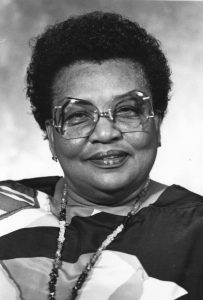
By Sharon Ewell Foster, NDG Special Contributor
In the name of progress, TxDOT is expanding the highway and promising a freer flow of traffic, right through the birthplace and homestead of my aunt, late activist, and long-time Dallas ISD board member, Yvonne Ewell. As we whiz over roads, stopping at convenience stores, motels, and gas stations—none of them owned by people who look like me—we seldom consider poor farmers who have sacrificed their land, especially poor black farmers threatened with extinction and economic disaster. While others get rich, the poor get poorer as the highway devours land, like my grandfather’s, with no consideration of the impact on future generations.
According to the Federation of Cooperatives Land Assistance Fund, Black land ownership peaked in 1910 at around 15 million acres, most of it in the South. But, according to a 2001 Associated Press story “Torn from the Land: Black Americans’ Land Taken Through Cheating, Intimidation, Even Murder” Black land ownership had dropped drastically, 2 ½ times that of poor White farmers. Authors Todd Lewan and Dolores Barclay state, “Today, blacks own only 1.1 million acres of farmland and are part owners of another 1.07 million acres.” My family is set to be part of that statistic—a statistic that leaves the African American community poorer and with less access to resources, like education.
In 1942, jazz songstress Billie Holiday sang, “Them that’s got shall get, them that’s not shall lose . . .” We’ve read stories of developers and scammers purchasing land scheduled for “Right of Way”, and flipping it in order to reap huge, quick multi-million-dollar profits while men like my grandfather are offered pittance for land they’ve farmed for generations.
Like other black farmers land ownership was both a symbol of freedom and a promise of opportunity. Now, so TxDOT can acquire the land for pennies, they seek to devour it in bite-sized chunks.
My own great-grandfather was born into slavery. Against all odds, he acquired the land TxDOT will soon take. The land has been owned by my family more than 100 years and it did mean prosperity. My grandmother earned a degree and became principal of the segregated local school. Because of the land and my grandfather’s hard work, all three of their surviving children earned degrees. One aunt was a school teacher married to a senior Army officer. My own father became a Deputy Assistant Secretary of the Army. My eldest aunt, Yvonne, according to the Texas Historical Commission, was a trailblazing educator, an important Texas Woman. A Dallas magnet school is named in her honor. None of my parent’s generation would have been educated or been able to serve had it not been for the land.
While White land flippers earn millions, land owned by Blacks is under-valued. Under-valuing black-owned property and land means an inability to get loans, like those denied black farmers by the Department of Agriculture, and the inability to finance necessities like home repairs, farm needs, and education. It means blacks get poorer instead of wealthier, and contributes to the ever-widening wealth disparity between Whites and people of color. The land is undervalued until it becomes the property of already wealthy white developers or the State.
My great grandfather acquired the land, but the State of Texas cut Highway 175 right through it.
I remember sitting outside the family house with my grandfather after he had completed a hard day’s work. Gazing across the highway, I was amazed that his cattle knew when to come home to the barn. A pillar in his community, I remember pickup trucks pulling into the driveway off the highway when men, both Black and White, sought my grandfather’s advice. I also remember a man speaking to my grandfather in threatening tones because my father, who had relocated to Illinois, had come to visit. I remember.
Blacks have lost land because government entities have grabbed it, they’ve been swindled, or victims of violence. It was dangerous for Blacks, like by great grandfather to be land owners. “Many of those lynched were property owners,” says Ray Winbush, professor at Morgan State University. “If you are looking for stolen black land,” he says, “just follow the lynching trail.”
Now the highway is expanding, gobbling up my family’s history and prosperity. The land assessment doesn’t account for the land’s importance to the community’s development, but it should. Why is a transient convenience store more important than land that fed hungry people? And in addition to being a principal, my grandmother built a schoolhouse on the land so that she could teach illiterate adults. Bigots burnt a cross in front of it to discourage her service.
Though the highway has already been broadened, TxDOT still wants more land; they have not been forthcoming about why. Pavement will cover our land, our legacy, and the education of future generations. We should be treated fairly. After over 100 years, we deserve a fair accounting and a fair price.
Sharon Ewell Foster is the author of “Abraham’s Well”, a Trail of Tears novel that, in part chronicles her family’s arrival in Texas. She is also author of “The Resurrection of Nat Turner”, 2012 winner of the Civil War Institute’s Michael Shaara Prize for Excellence in Civil War Fiction.








